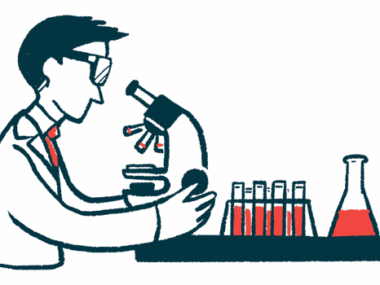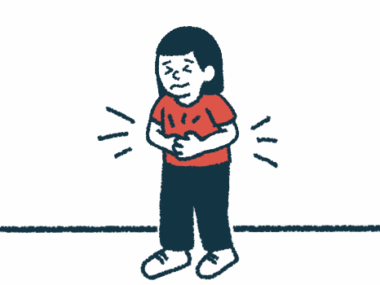Anxiety common in children with PWS, caregiver survey says
Caregivers cite treatment of hyperphagia, anxiety as significant unmet need
Written by |

Most children and adolescents with Prader-Willi syndrome (PWS) experience frequent anxiety and engage in distress-related behaviors that become a regular part of daily life for their families.
That’s according to results from a survey completed by caregivers at the start of the Phase 3 CARE-PWS clinical trial (NCT03649477), which tested Acadia Pharmaceuticals’ experimental therapy ACP-101 in PWS patients, ages 7-18 years.
“This new analysis … comprehensively describes the common anxiousness behaviors experienced by pediatric patients with PWS,” James M. Youakim, MD, vice president of clinical development at Acadia, which funded the analysis, wrote in an emailed statement to Prader-Willi Syndrome News.
The data were shared in a poster, titled “The Burden of Anxiousness- and Distress-Related Behaviors in Prader-Willi Syndrome,” at the 2025 United in Hope International PWS Conference, held recently in Phoenix.
‘High burden’ of behavioral challenges on caregivers, patients
“These findings help us characterize the high burden these behavioral challenges place on caregivers and patients, which, in addition to other hallmark symptoms of PWS like hyperphagia [excessive hunger], drive home the significant unmet need in this patient community,” Youakim said.
Starting in early childhood, PWS drives an uncontrollable hunger that often leads to excess weight and obesity. This hyperphagia can make patients feel anxious and distressed as they try to get food, leading to challenging behaviors like anger or frustration.
“Anxiousness- and distress-related behaviors frequently lead to conflict and temper tantrums that negatively impact the daily functioning and quality of life of individuals with PWS and their families,” the researchers wrote in the poster.
ACP-101, Acadia’s candidate for PWS-related hyperphagia, contains carbetocin, a lab-made version of the oxytocin hormone, which is linked to emotions and appetite. In PWS, low levels of oxytocin contribute to poor emotional control and overeating.
Delivered directly to the brain via a nasal spray, carbetocin is thought to ease hyperphagia by strongly binding to oxytocin receptors and compensating for its deficiency.
The CARE-PWS study included 119 children and adolescents with PWS who were randomly assigned to receive one of two doses of ACP-101 (then called LV-101) or a placebo.
Lower dose of ACP-101 eased hyperphagia-related behaviors
After about two months, the 3.2-mg dose of ACP-101, but not the 9.6-mg dose, significantly eased hyperphagia-related behaviors, as assessed with the caregiver-reported Hyperphagia Questionnaire for Clinical Trials, relative to the placebo.
The lower dose also significantly lessened anxiety and distress, as assessed with the caregiver-reported PWS Anxiety and Distress Behaviors Questionnaire (PADQ).
In this measure, caregivers are asked to rate how often they observed 14 such behaviors, each rated from zero (never) to four (always or almost always), during the previous week. PADQ’s total score ranges from 0 to 56, with higher scores indicating more anxiousness or distress.
Newly presented PADQ results showed that, at the start of the study, more than half of the children and adolescents (52%) were frequently anxious. Additionally, more than one-third (37%) were reported to be always or almost always anxious during the previous week.
The total PADQ score was above 28 points, or the midpoint on the scale, for all but one patient.
Behaviors that caregivers reported as occurring always or almost always included repeatedly asking about food (77.3%), confirming or reviewing information already known (72.3%), and showing anxiety about food (71.4%).
“Notably, all caregivers reported that these behaviors were observed at least sometimes with none indicating that they never or rarely occurred,” the researchers wrote.
Other frequently reported behaviors included asking for excessive details about daily schedules (70.6%), repeating the same questions (67.2%), and worrying about changes to plans (55.5%).
Anxiousness- and distress-related behaviors frequently lead to conflict and temper tantrums that negatively impact the daily functioning and quality of life of individuals with PWS and their families.
Nearly half showed nervous habits such as skin picking, finger biting
Nearly half of the patients (46.2%) reportedly showed nervous habits such as skin picking or finger biting, while a little over a third (35.3%) got upset with changes in schedules or routines.
“These findings provide additional context to interpret previously published PADQ results from the CARE-PWS trial, showing patients treated with the 3.2-mg dose of intranasal carbetocin (but not the 9.6-mg dose) achieved significant improvements in anxiousness versus [the] placebo,” the researchers wrote.
ACP-101 is currently being tested in another Phase 3 trial called COMPASS PWS (NCT06173531). Its main goal is to investigate how well a 3.2-mg dose of ACP-101 eases hyperphagia-related behaviors compared with a placebo after about three months.
With top-line findings expected later this year, “the COMPASS PWS study is investigating the possible benefit of ACP-101 on hyperphagia, as well as potential impact on behavioral symptoms such as anxiousness that is associated with PWS,” Youakim said.







